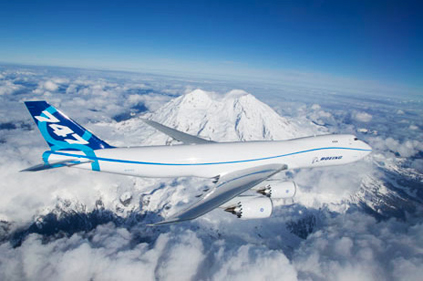
The Air France-KLM decision follows earlier announcements by Lufthansa Cargo to change its fleet from MD11s to 777Fs; Japan Airlines abandoning its entire freighter fleet; Qantas cancelling plans for a 747 freighter lease; Singapore Airlines Cargo and Cathay Pacific Cargo parking freighters, and FedEx replacing its MD10 fleet with B767Fs, just to name a few fundamental changes in fleet composition.
To be clear, the decisions are closely linked to structural developments in air cargo in general, which is not just facing over-capacity and high fuel prices, but rather the effects of the by now abating global economic recession, which has prompted changes in outsourcing, a review of existing logistics services, starkly improved sea freight offerings and the related re-assessment of the role of air cargo in the global supply chain.
While in some parts of the world, notably the Middle East and Africa, the recession has had only a minor effect on air cargo transport, other continents such as Europe and Asia-Pacific continue to face enormous challenges which call for drastic and fundamental solutions.
It's probably not farfetched to state that, except for a number of well-managed full freighter operators and some of the Middle East combination carriers, the era of the jumbo freighters is slowly coming to an end.
Obviously, Boeing would wholeheartedly disagree with that notion, but the irony is that the US manufacturer has partly itself to blame for the shift from 747 freighters to the smaller B777 cargo plane and comparable offerings from its competitor Airbus.
By developing the fuel-efficient, twin-engined B777 passenger aircraft with a belly-hold cargo capacity of some 30 tonnes, Boeing in effect created the perfect cargo solution for passenger and combination carriers that were facing high fuel costs and declining cargo loads due to the recession and the related over-capacity in the market.
Simply put, Boeing created its own competitor for the 747 freighter, although it should be pointed out that the company has had a reasonable success in marketing the larger 747-8F version to mainly full freighter operators like Cargolux, Nippon Cargo Airlines, Atlas Air and Volga-Dnepr. The combination carriers which have acquired the freighter version include Cathay Pacific, Saudia and Korean Air.
With a few exceptions, notably in the Middle East and partly in Asia, the world's combination carriers are now opting for smaller, fuel-efficient mid-size planes to complement the growing belly-hold capacities of their passenger aircraft, and rescheduling their freighter services to cargo-attractive destinations with better yields.
Cost efficiencies derived from operating the same type of aircraft in both passenger and freighter versions will further contribute to the bottom line.
If this development materialises, it supposedly is good news for the specialist full freighter operators, who will continue to offer point-to-point dedicated freighter services to destinations which are not or hardly served by the full passenger and combination carriers.
The dark cloud on the horizon is, of course, that the business case for full freighter operators continues to be affected by high fuel prices, which are unlikely to disappear anytime soon.
The role of air freight, the changing demand for dedicated logistics services and the spectacular growth of e-Commerce and the potential for freighter operators in that sector, are among the subjects which will be discussed during the forthcoming Air Cargo & Logistics Asia - ACL Asia 2013 - Conference & Exhibition. The event will take at the Marina Bay Sands Convention & Expo Center in Singapore on October 16-18, 2013.




